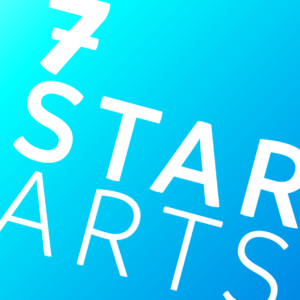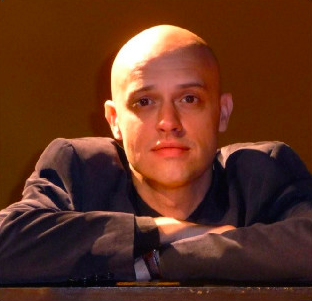Meet the Artist – Rowan Hudson, jazz pianist
The nature of improvised music means that it’s very rare that everything falls together perfectly in real time, and in a way that’s not the point.
Who or what inspired you to pursue a career in music?
It’s actually very hard to pin it down to anything very concrete, I think partly because I can’t remember a time when I didn’t want to be a musician I’ve forgotten what the original motives were (and they were probably very different to what they are now), but it was probably around the age of 9 or 10 that everything else became secondary to music. I don’t think I ever really made the conscious decision to play the piano rather than any other instrument either. We had a piano in our house growing up and I had taken lessons from the age of about 7, so that sort of solved it for me. The piano is such a versatile instrument that it was able to keep up with my changing tastes in music and I never felt like I needed to look elsewhere for the sounds I was trying to make.
Who or what have been the most important influences on your musical life and career?
Apart from a couple of years of just wanting to sound exactly like Bill Evans, I don’t think I’ve been one of those musicians who has one main influence who is their ultimate musical guide, which tends to happen a bit in Jazz. Within Jazz the players who have influenced me are people like Ahmad Jamal, Liam Noble, Monk, Kit Downes, and I like them all for different reasons. For example I don’t think my playing resembles Ahmad Jamal’s at all, but his use of space has had a big impact on me, and the way in which everyone in his trio with Israel Crosby and Vernel Fournier is equally important, but there are very few bass solos or drum solos has changed the way I think about trio playing.
Outside of Jazz Robert Wyatt has been a huge influence, both as a drummer and a songwriter. His music has always felt extremely honest to me and he manages to break conventions without it sounding self consciously ‘different’. Some classical composers, particularly people like Frederick Delius and York Bowen have influenced my writing and my improvising as well, especially in their ability to form long compositions from very small, simple motifs. I’ve spent a lot of time trying to decipher the harmony in Delius’ music (I even started writing an online blog on it) and i’ve noticed that starting to creep into my music as well.
In terms of writing music I’ve realised that I’m generally not inspired by the sorts of things that most people seem to be. Most of the music that I’ve written is much more a reflection of places than it is of people. I wrote a tune a few years ago called Lunar Blues for a quintet I was playing with at the time. I had been sitting up on the roof one night staring at the sky, and that song was a sort of musical portrait of the moon, something enormous looking over us but also incredibly calm and benign. That’s the kind of thing that inspires me to write music, and it doesn’t have to be something as ethereal as the moon, it can be something much more mundane, but I think that’s the kind of thing I want to be able to convey with the music that I write. If I was a painter I’d paint scenes of places rather than portraits.
What have been the greatest challenges of your career so far?
Obviously there are always things that I want to improve about myself, things about my playing and my writing that I’m not happy with, but I think what I’ve found the hardest up to this point is all the other aspects of being a musician other than playing the music. It’s partly do to with confidence but also because I’m just not very interested in (or very good at) promoting myself and making opportunities for myself. Like every other musician, I’d rather be sat at my instrument playing music than dealing the business side of things and I think that has held me back sometimes.
Finding a place to belong within music has also been difficult sometimes. I’ve come from a Jazz background where there is a fairly clear blueprint to follow in terms of making a career (study at university, go to a lot of jam sessions, form a group playing your own music, hopefully be in demand as a sideman) obviously that doesn’t mean that it’s easy at all, but there is a set of ‘rules’ to follow there. I’m starting to feel less and less like I want to be part of that. Equally I’ve never wanted to have a career as a classical pianist (which also has its established conventions), so I’m somewhere in the middle which comes with its own challenges as well. But a lot of the music I listen to, people like Robert Wyatt and Simon Jeffes have made wonderful music without being firmly within one camp, so it is completely possible to find a home outside of the established conventions for making music.
Which performance/recordings are you most proud of?
Some of the music that I’m now playing with my trio I think is getting close to the sound I’ve been trying to create for a long time. And the other members of the trio have brought things to the music which have taken it in other directions (particularly rhythmically) which is great, and I think our three personalities are all being heard in the music we’re playing now. I’m also writing a lot of music at the moment which is less based around improvisation and uses a few instruments like cello and clarinet which I haven’t written for before. I need to work on the writing for that a bit longer, but hopefully that will start to all come together next year
Which particular works do you think you play best?
Generally I like to play simple tunes, with not too many changes. In the trio that I’m playing with at the moment we all love playing Monk tunes, so much so that we’ve actively tried to cut down the amount of Monk tunes that we play because we were getting to the point where almost half of what we were playing was his tunes. It’s the simplicity mixed with the weirdness that I think appeals to us, and his tunes take us to the kinds of places improvisationally that we seem to like to go to. Aside from Monk, I think that as a trio some of the slower Latin tunes work really well. We definitely play better at slower tempos as a trio. I’ve been playing with JJ, the bass player, for years and we’ve always preferred playing slow music to fast. Although in general I think it’s harder to play, it gives you more space to really listen and make choices, and it’s much harder to rely on just blowing through the changes when you’re at a slow tempo.
Do you have a favourite concert venue to perform in and why?
The Vortex, in Dalston, for me is the best venue in London. I’m still yet to put on a gig playing my own music there, but I’ve played there as a sideman and I think it’s the venue which relates best to the kind of music that I’d like to make. Audiences tend to be very supportive there and people rarely go there without the intention of keeping completely quiet and listening to the music. Probably the majority of the really great music that I’ve heard in London has been there. The Bull’s Head, in Barnes, has a similar atmosphere and I’ve enjoyed playing there a lot recently. Some of the audiences outside of the UK have been really supportive as well. I did some playing in Hamburg in 2016 and the audiences there were great, completely willing to spend their money to come and listen to us having never heard of us before, that really surprised me.
What is your most memorable concert experience?
One of the most memorable was very recently actually, at the Bull’s Head in Barnes. We played a tune called Come Sunday, written by Duke Ellington. It was one of those rare times where I felt like the three of us in the trio and the audience were completely connected. I can’t think of a better way of describing it than that. I’ve only had that feeling maybe four or five times in all the time I’ve been playing. Very occasionally everything just fits perfectly in the moment and that was one of those times. And as a result we played that tune very differently to how we had been up to that point.
The nature of improvised music means that it’s very rare that everything falls together perfectly in real time, and in a way that’s not the point. There’s a Miles Davis quote where he says something like ‘I can play music all night, but there will only ever be about 8 bars where I really nail it’, and I know what he means, although for me it’s about 8 bars a year. I think I’d been playing Jazz for at least four or five years before I ever played a tune and afterwards thought ‘that wasn’t bad actually’.
As a musician, what is your definition of success?
To find my own voice. And to get to the point where I feel like I’m playing and writing in the most genuine and honest way possible. I don’t think I necessarily want to have a long long career in music and be doing what I’m doing now in 20 years. If I can get to the point where I’ve written and performed some music that I really believe in then that’s probably enough for me. That could take five years, or the rest of my life, but that’s the goal.
What do you consider to be the most important ideas and concepts to impart to aspiring musicians?
I think probably the best advice I could give is very boring – practice the fundamentals. A lot of people (myself included) neglect simple things like having good time, feeling comfortable in difficult keys (and minor keys), ear training, etc. too early in their development and move on to really complex concepts before the fundamentals are really in place. I definitely made that mistake and I now practice mostly quite basic things along those lines. Also, to me there seems to be a bit too much focus on harmony and not enough focus on phrasing and rhythm in Jazz education, maybe that’s just a personal thing. It’s difficult sometimes early on to see the timeline of your playing. The balance between getting the fundamentals together and also trying to find your own sound can be hard. I think most Jazz players now need to have very solid foundations to built on, maybe that wasn’t the case in the past for people like Ornette Coleman, who made his own rules. But nowadays it seems to be pretty hard to get anywhere without good reading, ability to play in different time signatures, ability to play modal tunes, etc. That’s not necessarily a good thing, but I think it is the way things are now.















